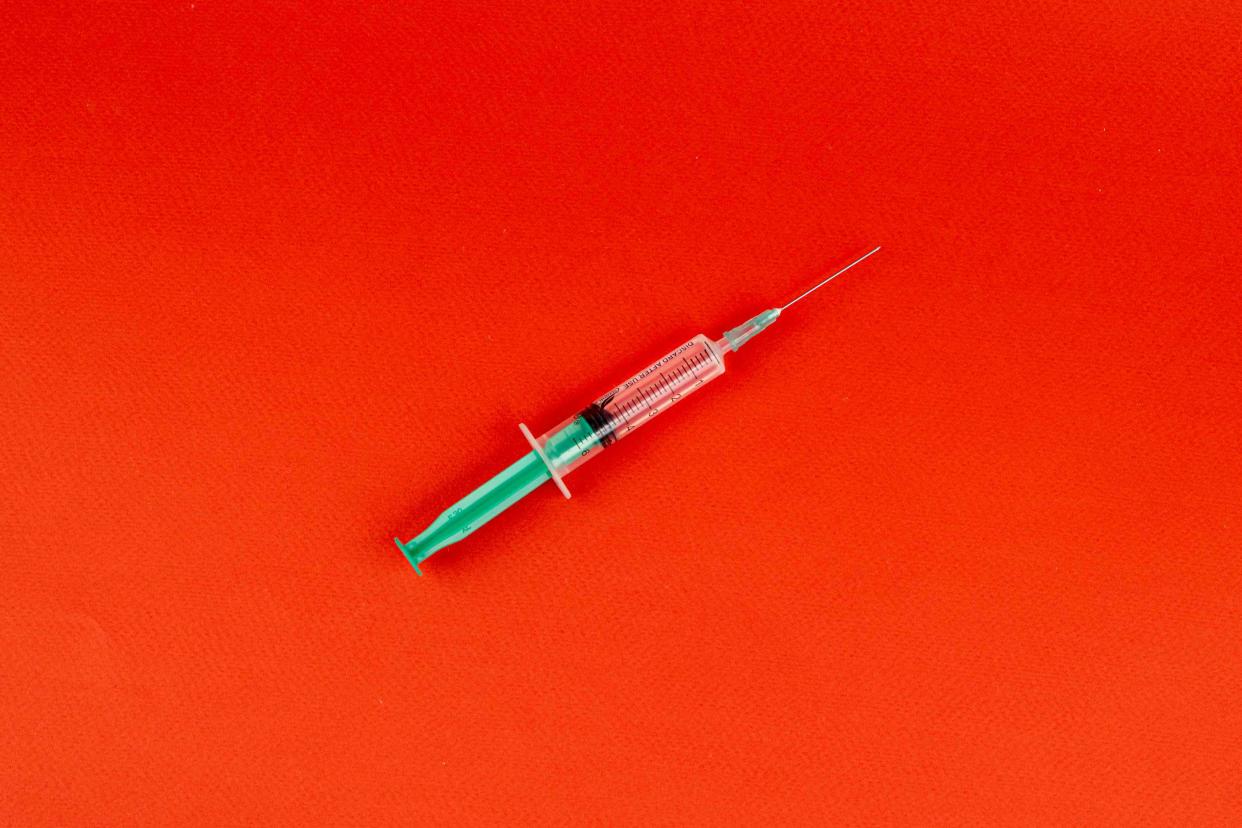We're One Step Closer to a Vaccine Against Toxic Shock Syndrome

Maksim Goncharenok/Pexels
Fact checked by Nick Blackmer
Key Takeaways
A vaccine for toxic shock syndrome, rTSST-1v, has shown promising phase 2 clinical trial results.
Over 80% of the 126 participants in the trial developed protection against TSS after getting their first dose of the vaccine.
The vaccine works by stimulating the production of antibodies that would prevent the onset of toxic shock syndrome. If approved, the vaccine would be administered intramuscularly as a two-dose series.
Toxic shock syndrome (TSS) is a rare but potentially life-threatening condition that’s caused by toxin-producing bacteria. When most people think of toxic shock, the first risk factor that leaps to mind is usually high absorbency tampons. But TSS isn’t just linked to tampons or even menstruation—anyone can develop it. If it goes untreated, TSS can lead to organ failure and even death.
New research from Austria has offered a glimpse into a future where it could be much easier to prevent TSS: with a vaccine.
The candidate vaccine, rTSST-1v, has completed a successful phase 2 clinical trial in which it showed it could offer protection for at least two years. Of the 126 participants in the study, more than 80% developed protection against TSS after the first dose.
“The vaccine candidate is a detoxified version of TSST-1, the toxin responsible for 75% of all TSS cases,” Andreas Roetzer, PhD, head of vaccine research and development at Biomedical Research & Bio-Products, told Verywell.
Takeaway
Staphylococcus aureus (staph) is often the cause of TSS, but Streptococcus pyogenes (strep) can also cause it.
Here’s how the vaccine works and what the approval process could look like.
How the TSS Vaccine Works
The TSS vaccine is designed to get the body to make neutralizing antibodies, which can prevent the onset of TSS. According to Roetzer, the neutralization aspect is key because it could stop symptoms and reduce the need for antibiotic treatment.
Depending on the expected efficacy of the vaccine, “it could prevent all hospitalizations” from TSS, Sharon Nachman, MD, a board-certified pediatric infectious disease specialist at Stony Brook Medicine, told Verywell.
The vaccine’s trial data has been promising so far, showing that most participants had a four-fold increase in antibodies after getting the first round of the vaccine (seroconversion). And 18 months later, over 85% of participants had protection after getting the third shot.
If approved, the TSS vaccine would be given intramuscularly, like a tetanus shot. Roetzer’s team plans to do follow-up trials 60 months after the initial vaccination and expects that a two-dose vaccine would be enough to provide life-long protection.
Who Is the Vaccine For?
While Roetzer said that “toxic shock syndrome is relevant for premenopausal women as soon as menarche (menstruation) starts,” the vaccine is intended for everyone.
Since using menstrual products like tampons is a known risk factor for TSS (and “menstrual toxic shock syndrome” is used to differentiate it from other risk factors), young teens would likely be one of the priority groups for the vaccine.
Related: How to Prevent Toxic Shock Syndrome
How Long Will It Take to Get Approved?
Testing the efficacy and safety of a TSS vaccine could take several years, according to Nachman. A lot of the timing will depend on who the key populations are determined to be. For example, a study focused on preventing TSS in teens who are just starting to have periods would require observing how well the vaccine works over a fairly long time.
Nachman said that the vaccine would also need to undergo a phase 3 clinical trial to prove that it’s safe and effective at preventing TSS on a larger scale. That part of the trial would typically involve several hundred to several thousand patients.
While we don’t have a vaccine yet, there are treatments for TSS, including:
Antibiotics
IV fluids
Vasopressors (to help with blood pressure when a patient is in shock)
Supportive care, such as wound care and pain control
It’s also important to remember that TSS doesn’t just affect women who have menstrual cycles—it can strike patients with weak immune systems, chronic wound infections, chronic illness, and people having surgery. An approved TSS vaccine would likely reduce the need for antibiotics and prevent hospitalizations—and could even save lives.
What This Means For You
Toxic shock syndrome (TSS) isn’t just linked to tampons; it can happen to anyone, including people with chronic wounds and illnesses, as well as those having surgery. A vaccine for TSS is in the works and could someday help prevent the potentially life-threatening infection.
Read the original article on Verywell Health.

